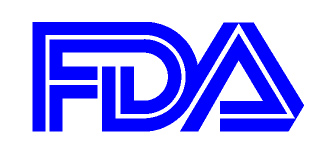
Jin Hua Qing Gan Fang made in lab.
The rules are different here in the United States. Hyde Park Holistic Center in Cincinnati recently received a warning letter from the Food & Drug Administration that read like many others having to do with nutritional supplements and the H1N1 virus. In China, though, the same admonishment could not be heard.
First, the FDA’s message to Hyde Park, which operates the Web site drdahlman.com: “The FDA has determined that your website offers a product for sale that is intended to diagnose, mitigate, prevent, treat or cure the H1N1 Flu Virus in people. This product has not been approved, cleared, or otherwise authorized by FDA for use in the diagnosis, mitigation. prevention, treatment, or cure of the H1N1 Flu Virus.”
The product in question is “4 Life Transfer Factor Plus Tri Factor,” which is sold in a password-protected store on the site. The product apparently supports immune system health or, as the FDA quotes Dr. Dahlman on one of his Web pages, “I firmly believe that use of this product will sufficiently upregulate your immune system and should be a primary part of your strategy to avoid the dangers of swine flu (H1N1 virus).”
It’s worth noting that Dr. Dahlman is not an M.D. His online biography says he is “a Chiropractic Physician with a degree in Nutrition, is Director of The Hyde Park Holistic Center in Cincinnati, Ohio and specializes in treatment of chronic health problems using nutritional, herbal and homeopathic therapies.”
If Dr. Dahlman were in China, he might have gotten praise rather than criticism. On Dec. 16, Chinese medical specialists said they had developed a Chinese herbal medication to treat H1N1. An article from the official Chinese news agency, Xinhua, quotes Wang Chen, president of Beijing’s Chaoyang Hospital, as saying the medication “can shorten patients’ fever period and improve their respiratory systems. Doctors have found no negative effects on patients who were treated in this way.”
The article adds that the herbal formula, called “Jin Hua Qing Gan Fang,” had been tested at 11 hospitals on 410 people who exhibited mild symptoms of H1N1. With success in treatment over a five-month period, the makers were seeking international patents.
The herbal medication is being positioned as a lower-cost alternative to Tamiflu, which WHO recommends for the treatment of H1N1.
Interestingly, the article quotes Cris Tunon, a senior officer at the WHO office in China, as saying that “WHO welcomes the clinical results.”
It’s unlikely the herbal medication would get the same greeting in the United States. The FDA has warned a number of companies with herbal products to stop making H1N1-related claims. Twice in 2009, the AHPA has advised against the use of dietary supplements to prevent or treat the flu. What happens when “Jin Hua” is marketed on American shores?



